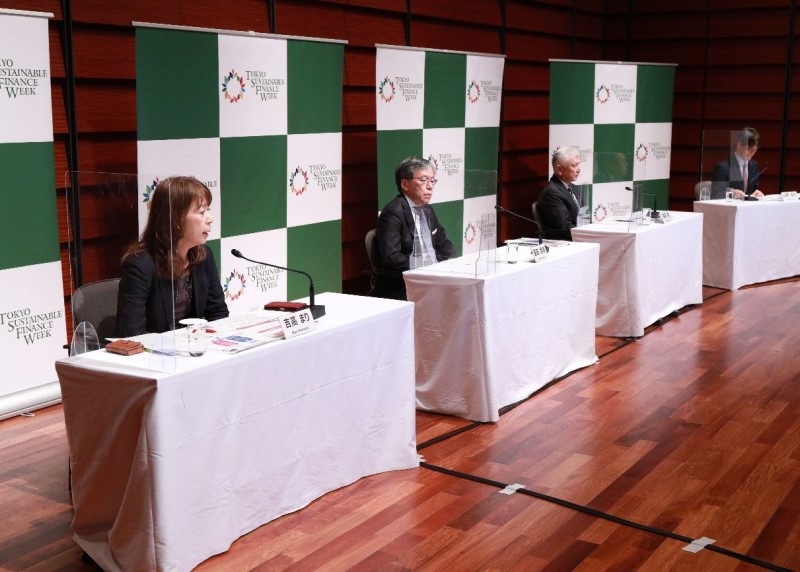TMG held a forum this October to share the experiences and visions of key facilitators of sustainable finance among financial institutions, government officials and beyond. Speakers include top officials of major investment funds driving sustainable finance both within and outside of Japan.
| Time | Contents of the session | Speaker |
|---|---|---|
| 14:15~14:20 (5min) |
Opening Remarks (Video Message) Original(Japanese)  Translation(English)  |
Yuriko Koike Governor of Tokyo |
| 14:20~14:35 (15min) |
Keynote speech (Video Message) 「Role of Finance and Its Opportunities for Sustainable Development Goals(=SDGs)」 Original(Japanese)  Translation(English)  |
Hiromichi Mizuno Special Envoy of U.N Secretary-General on Innovative Finance and Sustainable Investments |
| 14:35~14:45 (10min) |
Speech (Video Message) 「The Critical Role of Disclosure in a Net Zero Economy」 Original(English)  Translation(Japanese)  |
Mary Schapiro Head Of The TCFD Secretariat Vice Chair for Public Policy, Special Advisor to the Founder and Chairman Bloomberg L.P. |
| 14:45~15:00 (15min) |
Speech (Video Message) 「JPX’s Strategy on Susainable Finance」 Original(Japanese)  Translation(English)   |
Akira Kiyota Director & Representative Executive Officer, Group CEO Japan Exchange Group, Inc. |
| 15:00~15:20 (20min) |
Speech 「ESG Investment by GPIF」 Original(Japanese)  Translation(English)   |
Masataka Miyazono President, Government Pension Investment Fund |
| 15:20~15:35 (15min) |
Speech (Video Message) 「Sustainable Finance by a Large Institutional Investor」 Original(English)  Translation(Japanese) 
 |
Carine Smith Ihenacho Chief Governance and Compliance Officer, NORGES BANK investment management |
| 15:35~15:50 (15min) |
Speech 「Leading sustainability in Asset Management」 Original(English)  Translation(Japanese) 
|
Marco Morelli Executive Chairman, AXA Investment Managers |
| 15:50~16:05 (15min) |
Speech (Video Message) 「BOJ Strategy on Climate Change」 Original(Japanese)  |
Koji Nakamura Deputy Director-General at International Department and Monetary Affairs Department, and Head of Climate Coordination Hub, Bank of Japan |
| 16:05~16:25 (20min) |
Speech 「On Investor’s Engagement」 Original(Japanese)  Translation(English)  |
Emi Onozuka Executive Vice President, COO, Japan Catalyst, Inc., a member of Monex Group |
| 16:25~16:40 (15min) |
Speech 「The Tokyo Metropolitan Government's Initiative regarding Sustainable Finance」 Original(Japanese)  Translation(English) 
 |
Eiichiro Kodama Director General for Global Financial City Strategy, Office of the Governor for Policy Planning, Tokyo Metropolitan Government |
| 16:50~18:00 (70min) |
Panel discussion 「Toward the Promotion of Sustainable Finance」 Original(Japanese)  Translation(English) 
   |
Moderator Hiromi Yamaoka Board Director, Future Corporation/Special Advisor for International Finance, Tokyo Metropolitan Government Member Panelists Takashi Saruta President and CEO, Sumitomo Mitsui DS Asset Management Company, Limited (SMDAM) Hideo Tomita Representative Director, Refinitiv Japan K.K. Mari Yoshitaka Principal Sustainability Strategist Deputy General Manager of Corporate Planning Dept. Mitsubishi UFJ Research and Consulting Co., Ltd. |
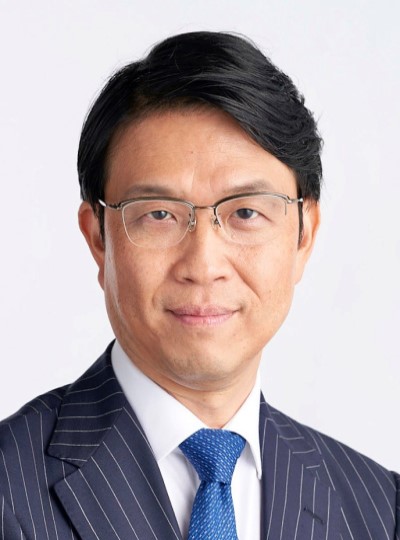
Hiromichi Mizuno
Special Envoy of U.N Secretary-General on Innovative Finance and Sustainable Investments
Mr. Mizuno is a Japanese financial executive, serving as the Special Envoy of U.N. Secretary-General on Innovative Finance and Sustainable Investments since January 2021.He previously served as Executive Management Director and CIO of GPIF (Government Pension Investment Fund of Japan with AUM $1.5 trillion).Prior to joining GPIF, Mr. Mizuno was a partner at Coller Capital, a London-based private equity firm (January 2003 - January 2015). He formerly worked for Sumitomo Trust & Banking Co. Ltd. in Japan, Silicon Valley and New York (April 1988 – January 2003).

Mary Schapiro
Head Of The TCFD Secretariat
Vice Chair for Public Policy, Special Advisor to the Founder and Chairman Bloomberg L.P.
Mary Schapiro is Vice Chair for Public Policy and Special Advisor to the Founder and Chairman at Bloomberg. Previously, Ms. Schapiro’s service as the 29th SEC chairman culminated decades of regulatory leadership. She was the first woman to serve as SEC chairman, and the only person to have served as chairman of both the SEC and the Commodity Futures Trading Commission.During four years as chairman, Ms. Schapiro presided over one of the busiest rule-making agendas in the SEC’s history, during which the agency also executed a comprehensive restructuring program to improve protections for investors. Upon her departure, President Obama praised her leadership, saying the SEC became stronger and the financial system “safer and better able to serve the American people — thanks in large part to Mary’s hard work.”
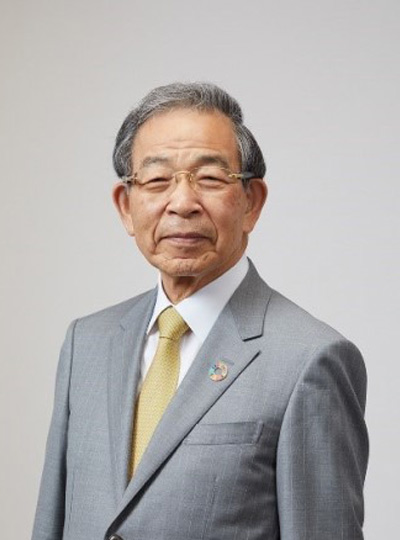
Akira Kiyota
Director & Representative Executive Officer, Group CEO
Japan Exchange Group, Inc.
Mr. Akira Kiyota graduated from the School of Political Science and Economics, Waseda University in 1969, and acquired an MBA at the University of Washington in June 1974. After joining Daiwa Securities Co. Ltd. (currently Daiwa Securities Group Inc.) in 1969, he held positions such as Director, Head of Tobu Area Sales Division; Director, Head of Bond & Finance Division; and Managing Director, Head of Bond & Finance Division before becoming Deputy President in 1997. In April 1999, he became the president and CEO of Daiwa Securities SB Capital Markets Co. Ltd. (currently Daiwa Securities Co. Ltd.) He served as Deputy Chairman of the Board and Senior Managing Director of Daiwa Securities Group Inc. and Chairman of Daiwa Institute of Research Ltd. in 2004, Chairman of the Board and Senior Managing Director of Daiwa Securities Group Inc. in 2008, and Honorary Chairman in 2011. In 2013, he became President & CEO of the Tokyo Stock Exchange, Inc. and he assumed his current position in 2015.
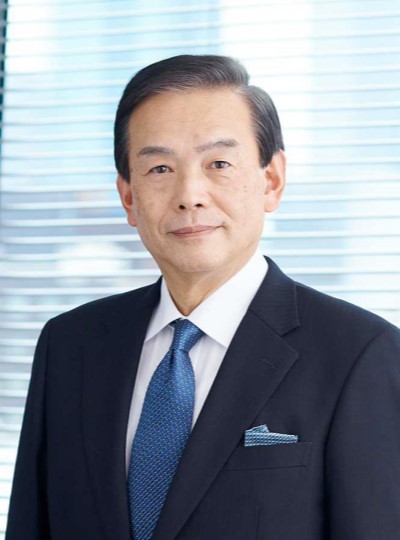
Masataka Miyazono
President, Government Pension Investment Fund
Mr. Miyazono is President of Government Pension Investment Fund (GPIF) since April 2020.Prior to his role at GPIF, he was President of Pension Fund Association. Previously, Mr. Miyazono served as Vice-President and Supervisory Committee member at The Norinchukin Bank. Since 1976, he held various leadership positions in the areas of management and others at The Norinchukin Bank, including, Senior Managing Director, Managing Director, General Manager of Corporate Planning Division, General Manager of Human Resources Division, Executive Secretary, Deputy General Manager of Coordination Division, Deputy General Manager of Corporate Planning Division, Director of Coordination Division, and Director of Treasury Division. He also served as General Manager at Kumamoto Branch of the Bank. He received his Bachelor of Arts degree in Law from the University of Tokyo in 1976.

Carine Smith Ihenacho
Chief Governance and Compliance Officer, NORGES BANK investment management
Carine Smith Ihenacho was appointed Chief Governance and Compliance Officer 6 October 2020. She joined Norges Bank Investment Management in August 2017 as Global Head of Ownership Strategies and was promoted to Chief Corporate Governance Officer on 1 January 2018.Prior to joining Norges Bank Investment Management, Ms. Ihenacho was Vice President Legal and Chief Compliance Officer in Statoil ASA. She has more than 20 years’ experience as a lawyer, working in both financials and the oil and gas industry, as well as in law firms. She also has extensive board experience. Ihenacho holds a law degree from the University of Oslo, a Master of Law from Harvard Law School and a Master of Economics from the Norwegian School of Economics (NHH).

Marco Morelli
Executive Chairman, AXA Investment Managers
Based in Paris, Marco Morelli is Executive Chairman of AXA Investment Managers since 14 September 2020 and a member of AXA’s Management Committee.After various professional experiences in Europe at KPMG, Samuel Montagu Ltd and UBS Ltd, Marco Morelli joined J.P. Morgan in 1994 and subsequently became CEO and General Manager of J.P. Morgan Italy and member of J.P. Morgan Europe executive committee.He joined Monte dei Paschi di Siena in 2003 and became Deputy CEO in 2006. He left in January 2010 to become General Manager and Deputy CEO of Intesa San Paolo Group, a position he held until 2012.Marco Morelli then joined Bank of America Merrill Lynch as Vice Chairman Europe, Middle East and Africa and CEO Italy. In September 2016, he became CEO and General Manager of Monte dei Paschi di Siena, a position he held until May 2020.He is Adjunct Professor at the Economics and Finance faculty of the LUISS University in Rome and a member of its Board of Directors. He is a co-founder and Vice Chairman of Fondazione Don Gino Rigoldi, an Italian no-profit organisation.
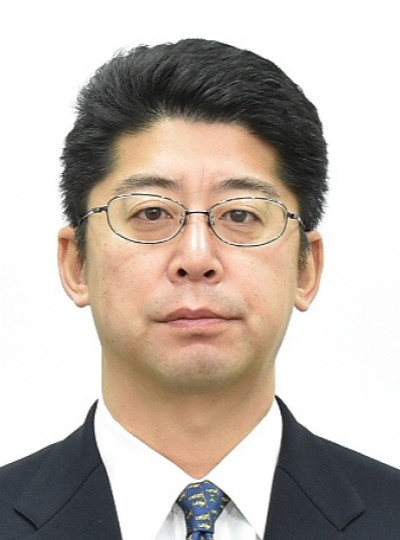
Koji Nakamura
Deputy Director-General at International Department and Monetary Affairs Department,
and Head of Climate Coordination Hub, Bank of Japan
Deputy Director-General at International Department and Monetary Affairs Department, and Leader of the Climate Coordination Hub, Bank of Japan. Joined the bank in 1992 and has held a variety of senior positions in Monetary Affairs Department, Research and Statistics Department, and Financial System and Bank Examination Department. Worked as economist of the Policy Developments and Review Department, the International Monetary Fund in 2003-2006. M.A. in Economics and M.B.A. from Boston University, and B.A. in Economics from the University of Tokyo.

Emi Onozuka
Executive Vice President, COO, Japan Catalyst, Inc., a member of Monex Group
Emi is currently the COO and leading ESG/Stewardship efforts for Japan Catalyst, Inc. as well as a leader for Monex Group’s ESG/Sustainability Taskforce. Previously, she held various roles at Goldman Sachs Asset Management during her twenty years at the firm (2000-2020). Since 2016, she headed the Stewardship Responsibility Group in GSAM Japan leading research in ESG (Environment, Social and Governance) and conducted company research and engagements with over 200 companies each year.
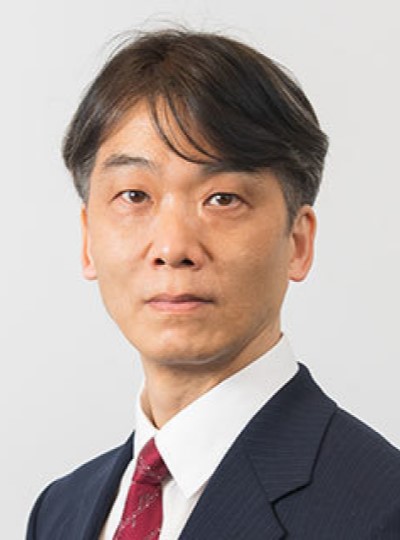
Moderator
Hiromi Yamaoka
Board Director, Future Corporation
Special Advisor for International Finance, Tokyo Metropolitan Government Member
Hiromi Yamaoka has wide-ranging experiences in the Bank of Japan, the central bank in Japan, and worked in various policy-related positions including the Representative in Paris, the Head of Economic Outlook Group and the Head of Large-Bank Surveillance. He also assumed key duties in many international policy forums such as the member of Markets Committee (MC) and the member of the Committee on Payments and Market Infrastructures (CPMI) of the Bank for International Settlements (BIS), as well as the member of the Basel Committee on Banking Supervision (BCBS). He published many books, papers and articles on economic and legal issues. He is an attorney at law in New York.
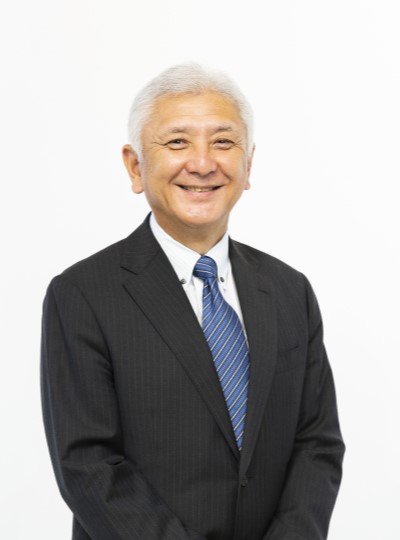
Panelists
Takashi Saruta
President and CEO, Sumitomo Mitsui DS Asset Management Company, Limited (SMDAM)
President and CEO, Sumitomo Mitsui DS Asset Management Company, Limited (SMDAM). Bachelor in Commerce at Keio University. Started career at Sumitomo Trust & Banking in 1984. Joined Nomura Asset Management Co., Ltd. in 2004 and became Executive Vice President in 2014. Appointed as Chairman and Director of Nomura Fund Research and Technology Co., Ltd. in 2018. Joined SMDAM as Deputy President Executive Officer in 2019 and appointed as President and CEO in 2020.
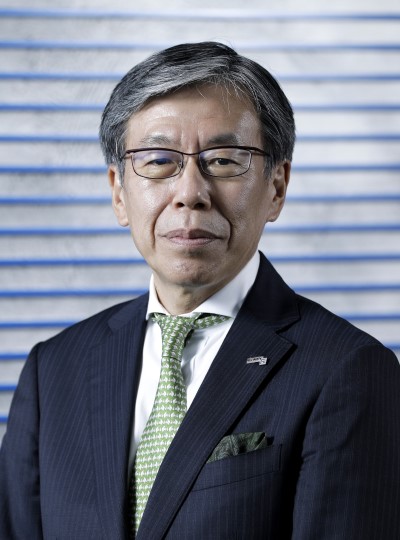
Panelists
Hideo Tomita
Representative Director, Refinitiv Japan K.K.
Hideo was appointed as Representative Director of Thomson Reuters Japan in 2012 and has kept the position. The entity’s name was changed to Refinitiv Japan in March 2019. Refinitiv became a part of London Stock Exchange Group business in February 2021. Prior to that, he held senior positions in leading financial information/software companies. He is a member of Japan Association of Corporate Executives and Japan Society of Monetary Economics.Hideo was appointed as Director of Japan Investment Advisers Association in June 2019. He also serves as a board member at The Organization of Global Financial City Tokyo.He has a Bachelor of Law from Keio University, Tokyo.

Panelists
Mari Yoshitaka
Principal Sustainability Strategist
Deputy General Manager of Corporate Planning Dept.
Mitsubishi UFJ Research and Consulting Co., Ltd.
After working for an IT company and a US investment bank, Mari joined the International Finance Corporation (World Bank Group), where she performed social impact studies for environmental projects in developing nations.Mari joined Mitsubishi UFJ Morgan Stanley Securities in 2000 to start up the Clean Energy Finance Committee and transferred to MURC in May 2020. Her area of expertise is climate change policy, especially climate finance and mitigation projects, in the fields of ESG investment and SDGs business. Mari is a member of Ministry of the Environment’s Global Environment Committee of Central Environment Council, World Economic Forum Global Future Council on Japan, Cabinet Secretariat’s Expert Panel on Climate Change, etc.She holds an M.S. from University of Michigan, School for Environment and Sustainability.

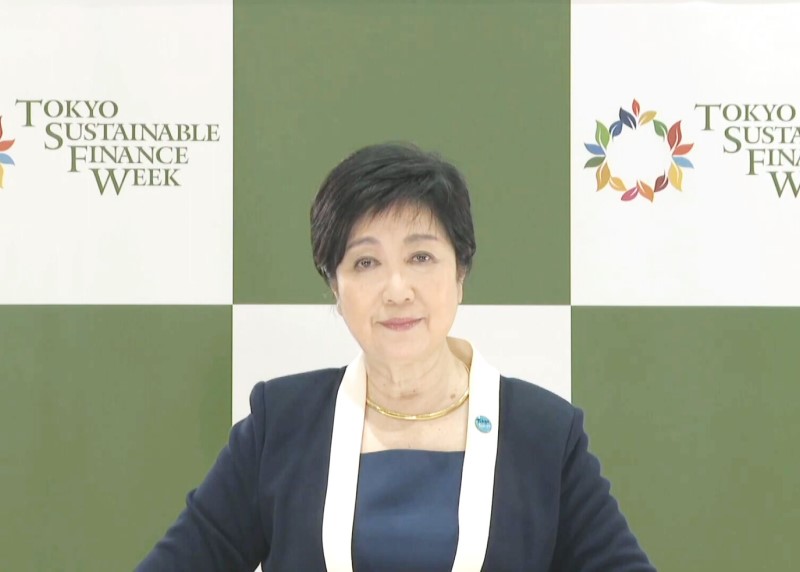
Governor of Tokyo Yuriko Koike

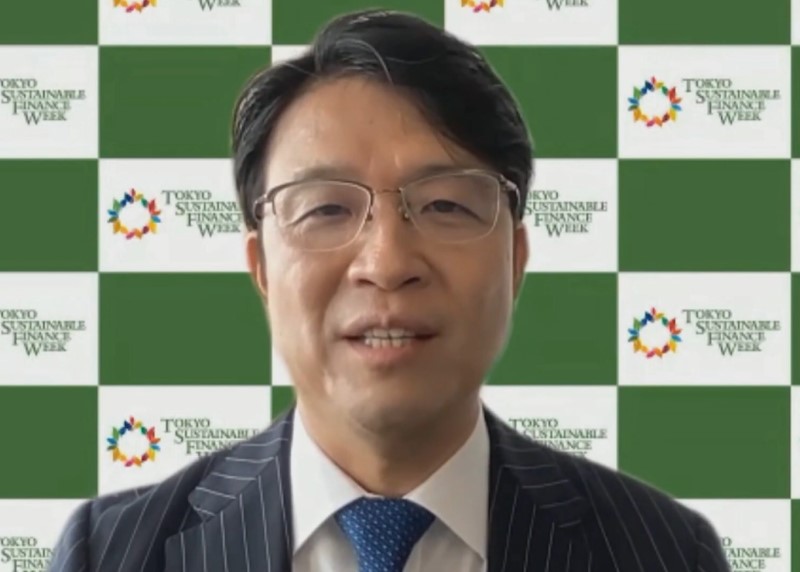
Special Envoy of U.N Secretary-General on Innovative Finance and Sustainable Investments Mr. Hiromichi Mizuno

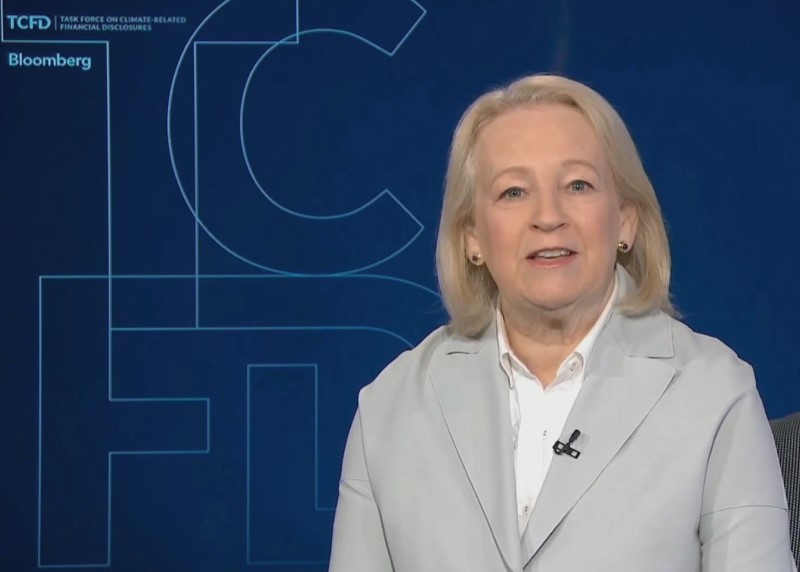
Head Of The TCFD Secretariat
Vice Chair for Public Policy, Special Advisor to the Founder and Chairman Bloomberg L.P.
Ms. Mary Schapiro


Director & Representative Executive Officer, Group CEO Japan Exchange Group, Inc. Mr. Akira Kiyota

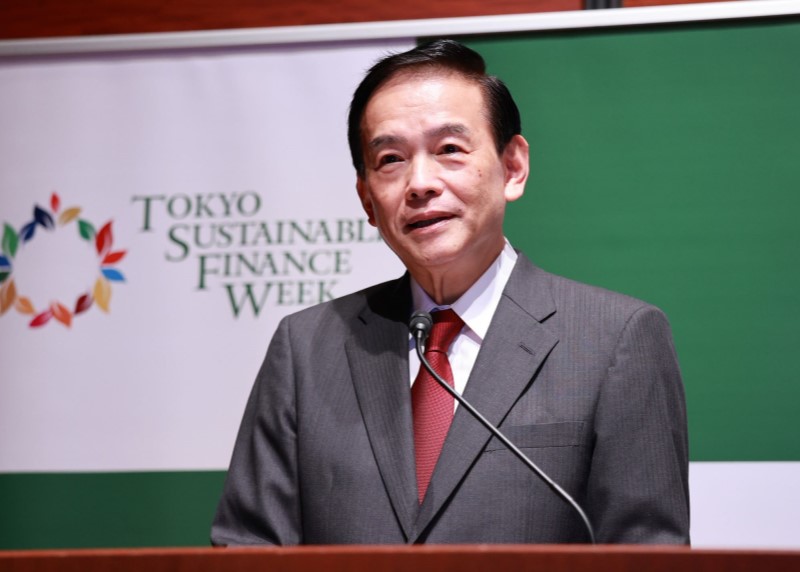
President, Government Pension Investment Fund Mr. Masataka Miyazono

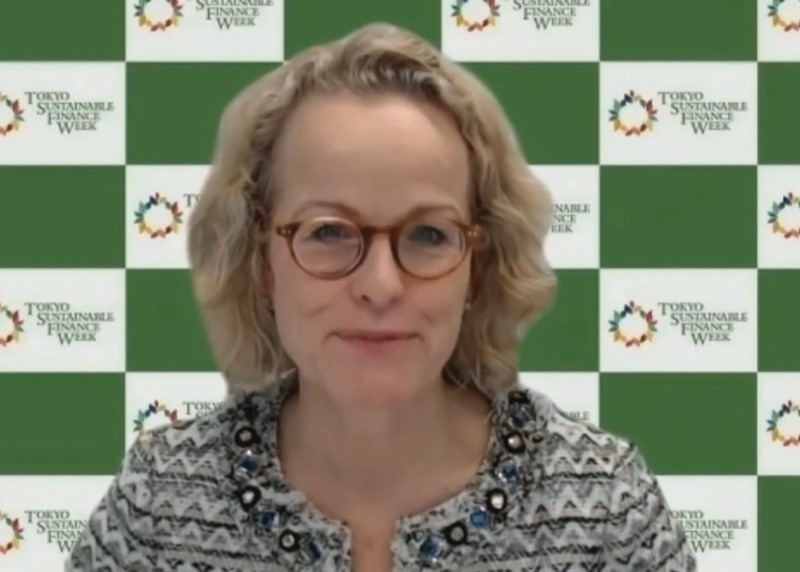
Chief Governance and Compliance Officer, NORGES BANK investment management Ms. Carine Smith Ihenacho

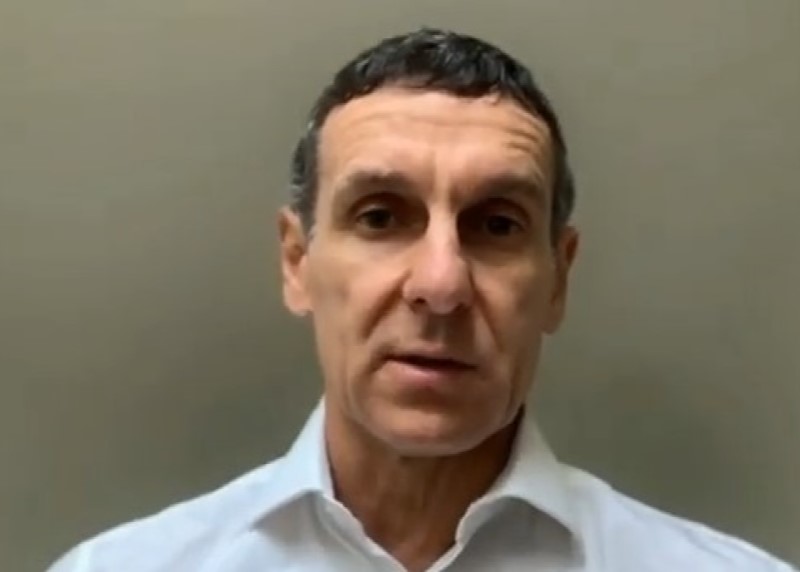
Executive Chairman, AXA Investment Managers Mr. Marco Morelli
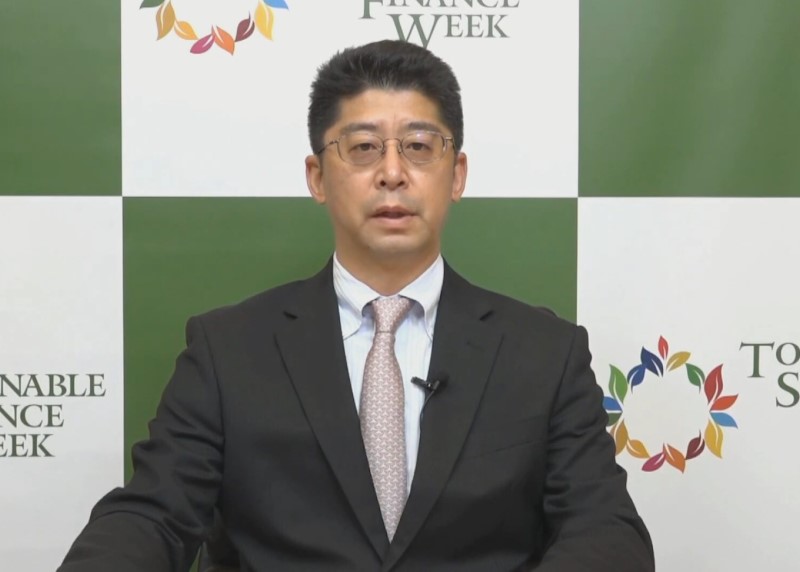
Deputy Director-General at International Department and Monetary Affairs Department,
and Head of Climate Coordination Hub, Bank of Japan
Mr. Koji Nakamura

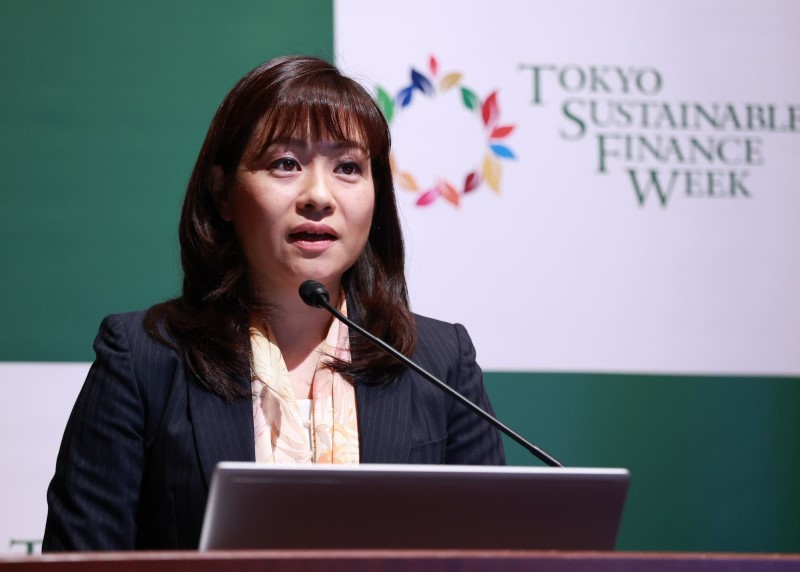
Executive Vice President, COO, Japan Catalyst, Inc., a member of Monex Group Ms. Emi Onozuka


Director General for Global Financial City Strategy, Office of the Governor for Policy Planning, Tokyo Metropolitan Government Eiichiro Kodama

In a panel discussion called "Toward the Promotion of Sustainable Finance," there were lively discussions on (1) trends in sustainable finance in the world and in Japan, (2) issues related to corporate disclosures in companies surrounding ESG finance and their evaluations, (3) how to promote ESG in a wide range of fields, including rural areas and small- and medium-sized enterprises, and (4) what Tokyo should do in relation to ESG finance.
Opening
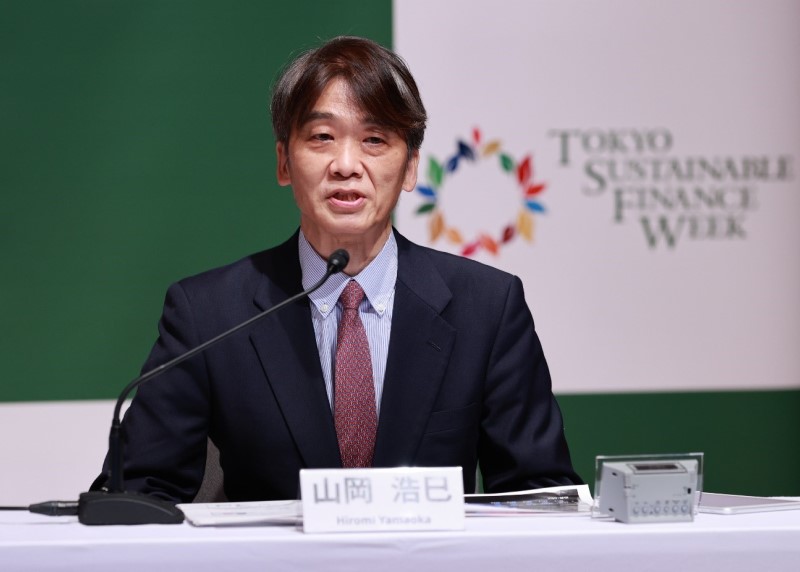
Theme① Trends in Sustainable Finance in the World and in Japan
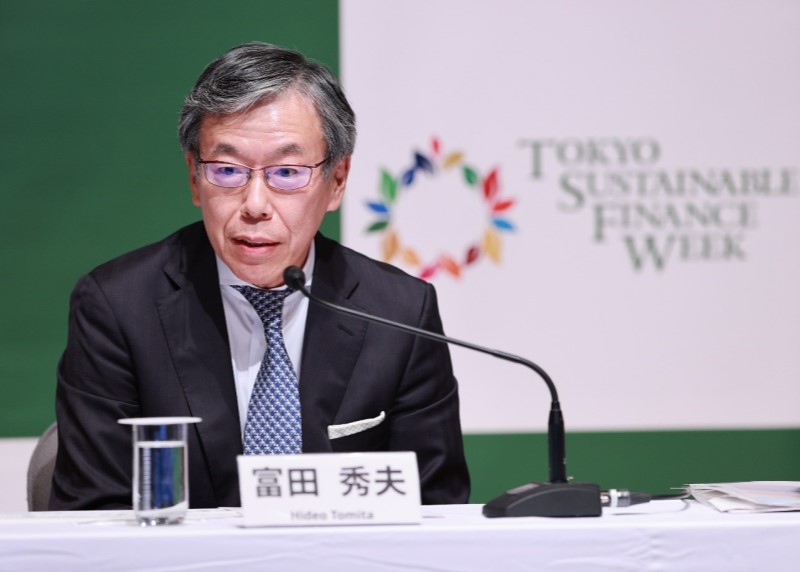
Theme② Issues Related to Corporate Disclosures in Companies Surrounding ESG Finance and their Evaluations
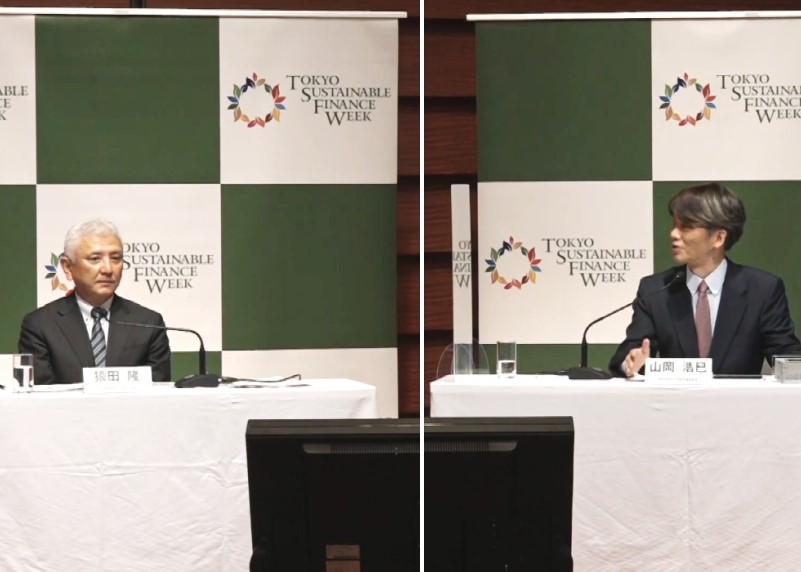
Theme③ How to Promote ESG in a Wide Range of Fields, Including Rural Areas and Small- and Medium-Sized Enterprises

Theme④ What Tokyo Should Do in Relation to ESG Investments
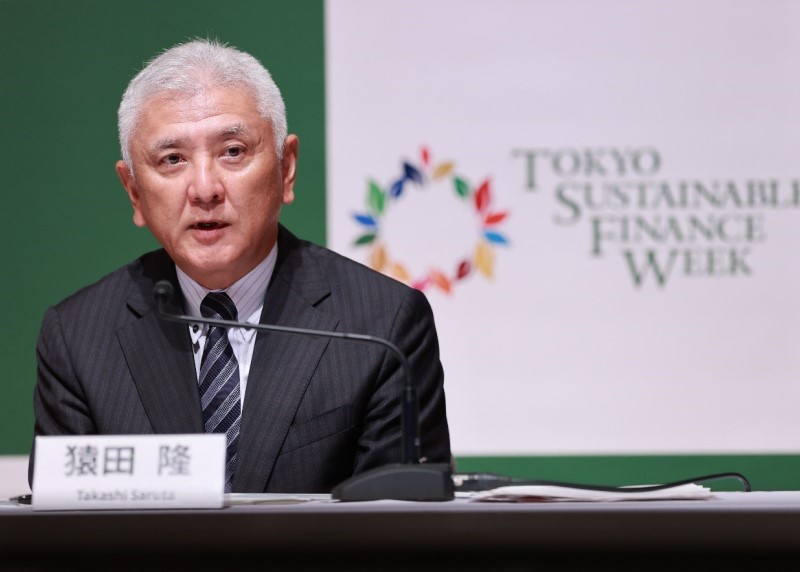
Q&A
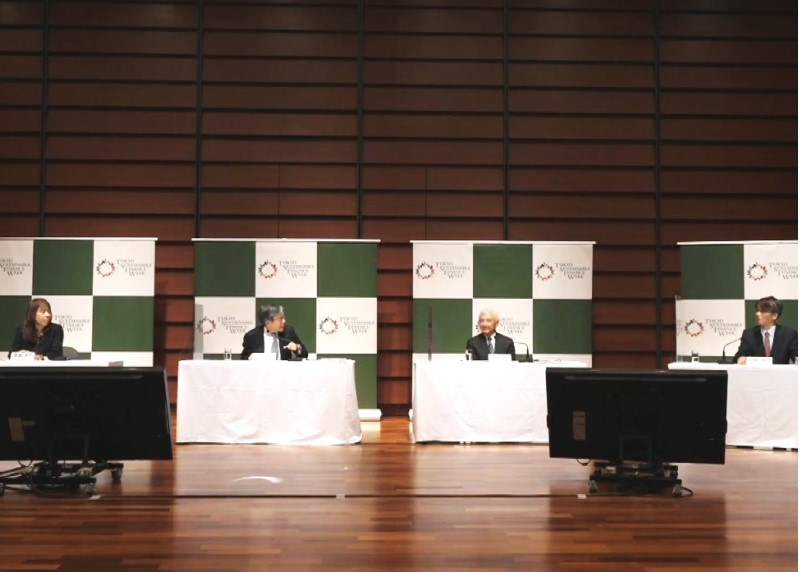
Conclusion
